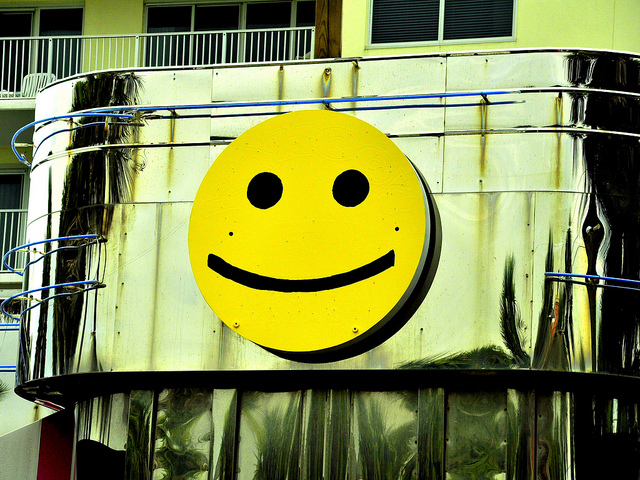It seems like happiness is the new wealth these days.
Everybody’s talking about it.
I for one love this trend. Money won’t buy happiness. Happiness buys happiness.
But for many of us, myself included, true happiness often feels harder to come by than cash.
And that’s because so many of us are wired to be unhappy. We look for what’s wrong, not what’s right. We ruminate on the one piece of the puzzle that doesn’t fit our desired picture. We defend and protect the tender parts of ourselves that got hurt along the way, further distancing ourselves from happiness. It’s like what Michael Singer describes as the thorn in our side that we protect at all costs from being touched. We build defenses around our thorns.
We tend go out of our way to try to ensure that our thorns aren’t touched, when often the best thing we could do for ourselves is embrace the temporary pain, pluck the thorn and move on.
But that’s hard work.
After all, to experience true happiness, we may need to:
- Change patterns of thought and behavior (retraining our brains to tune into what’s right instead of looking out constantly for what’s wrong or could be wrong)
- Take responsibility for our lives (victims aren’t typically happy people)
- Create a better future for our lives and work toward reaching that future
- Sacrifice short-term relief (i.e. drugs, alcohol, spending money) for long-term gains (i.e. true happiness)
After my life fell apart a few years ago, I got connected with a therapist, Frank. I didn’t like Frank at first. He made me question every thought I had. It was exhausting work. Frank made me fill out a worksheet that challenged my thoughts, which turned out to be my limiting beliefs. Every time I got pissed off or sad, (which back then was about 25 times a day), I had to fill out his worksheet. Frank’s worksheet forced me to challenge the thought and look for a rational, alternative way of thinking about my “problems.”
For example, if I was angry because someone said or did something I didn’t like, I had to write down the feelings, actions and possible outcomes I might experience by pursuing the thought. Then I had to write down my desired feelings, actions and outcomes, which were the exact opposite of what I was currently experiencing. After that, I wrote down an alternative thought—what Frank would call rational—and, unlike my first thought, this new thought was true. For example, a rational thought would be, “This person has free will to do, say and think what they want. Nothing the person says or does needs to question my self-worth and inner peace, which is eternal and not up for debate.”
I would grit my teeth and fill out these worksheets. I did them multiple times a day. I’d have the angry thought or depressed feeling, go to the worksheet and fill it out. It was hard work challenging my recurring stream of negative thoughts. It was like, as Frank often described it, learning to drive a car in England. I was so used to going one way, now I had to go another way. It was uncomfortable. It was not “natural” challenging my thoughts. It was hard work. But it changed my life.
By changing my patterns of thinking and, as a consequence, behaviors, I began to change my life. I started taking responsibility for my actions. I saw where I had been wrong. I learned to question the thoughts that held me back and applied new ways of thinking that helped me to grow.
I started feeling happier more consistently. Not from external treasures or short-term “balms,” but a genuine happiness that came from within.
I now see Frank once a month instead of once a week. He still gives me that look when I’m feeding him a line of horseshit about why such and such person is wrong and I’m right. Then I know it’s time to do the worksheet. To challenge the thought. To become mindful.
To continue the hard but beautiful work of happiness.
Author: Stephen Moegling
Editor: Renée Picard
Photo: Mario/Flickr









Read 0 comments and reply